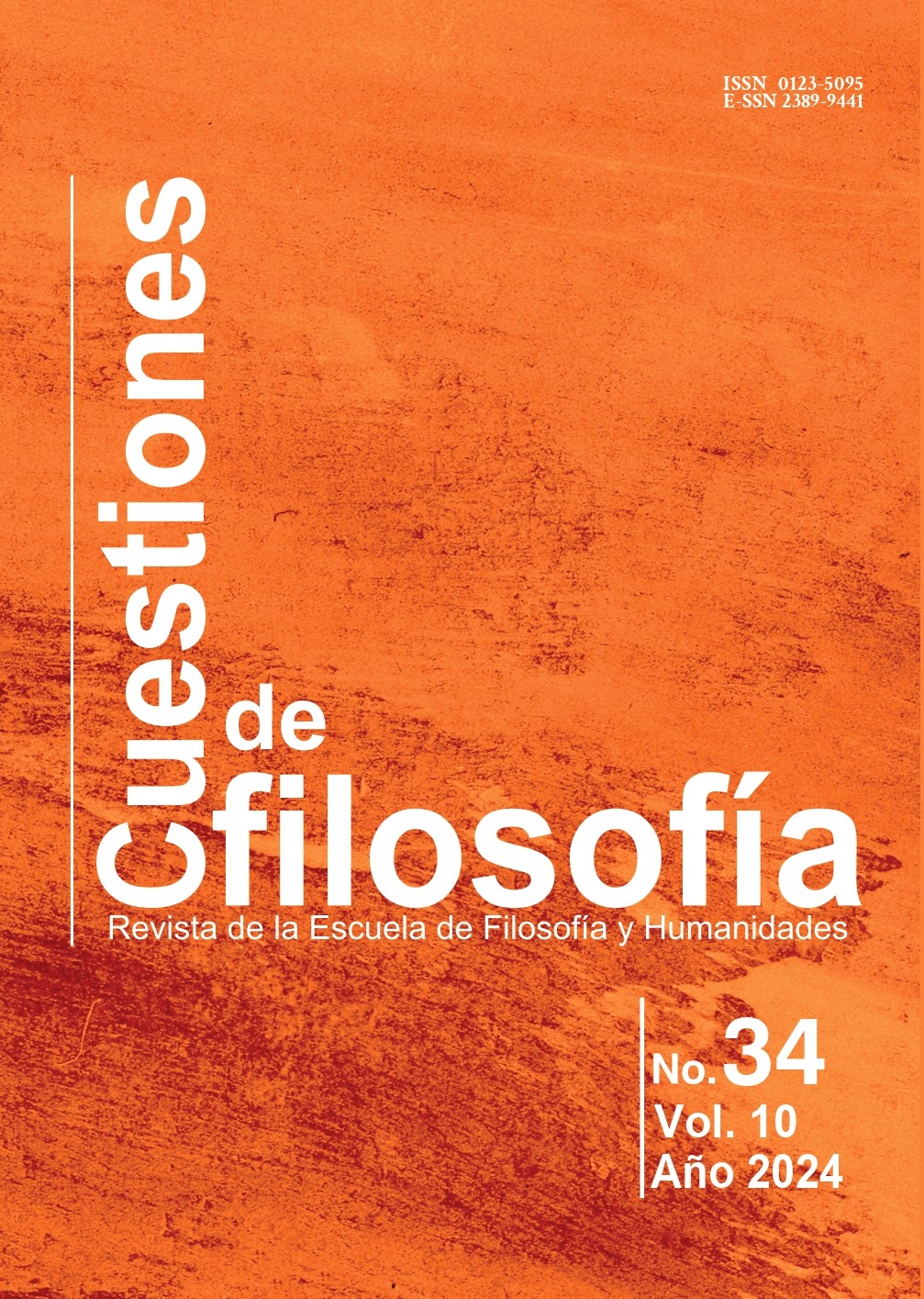Deleuze y el feminismo: debates sobre el devenir-mujer

Resumen
Este artículo investiga el concepto de devenir-mujer, y algunos de los debates que ha suscitado este concepto en la recepción de Deleuze en el campo de los estudios feminista y de género. Las interpretaciones han sido predominantemente negativas con base en críticas de diverso tipo: el significado del concepto no es claro ni definido; carece de eficacia política por su desconexión con las luchas concretas de las mujeres realmente existentes; oculta posiciones masculinas y etnocéntricas, andróginas o incluso patriarcales; conduce a un horizonte postfeminista que disuelve la identidad de la mujer e invisibiliza sus reclamos por reconocimiento; desconoce la importancia epistemológica y política de la diferencia sexual. La hipótesis propuesta en este escrito es que estas críticas pueden ser discutidas con argumentos fundados en una relectura rigurosa de este concepto en la obra deleuziana, que recupere distinciones clave (lo molar y lo molecular, la mayoría y la minoría) y analice las perspectivas esquizoanalíticas que sustentan su rechazo de la diferencia sexual y su mirada crítica acerca de algunas luchas feministas. Este trabajo explora, adicionalmente, en qué posición se puede situar a Deleuze en la polémica entre las teóricas del dimorfismo y las partidarias del género, respecto de lo cual sugerimos la posibilidad de inscribirlo en una orientación posgenérica.
Palabras clave
género, mujeres, sujeto, sexualidad, diferencia
Citas
- Binetti, M. J. (2018). El devenir-mujer de todo devenir. Una lectura mater-realista de Mil mesetas. Revista de Filosofía, 43 (2), pp. 283-294. https://doi.org/10.5209/resf.62031
- Braidotti, R. (1991). Patterns of dissonance: a study of women and contemporary philosophy (E. Guild, Trad.). New York: Routledge.
- Braidotti, R. (1993). Discontinuous Becomings. Deleuze on the Becoming-Woman of Philosophy. Journal of the British Society for Phenomenology, 24 (1), pp. 44-55. https://doi.org/10.1080/00071773.1993.11644270
- Braidotti, R. (1994a). Toward a New Nomadism: Feminist Deleuzian Tracks; or, Metaphysics and Metabolism. C. Boundas and D. Olkowski (Eds.), Deleuze and the theatre of philosophy (pp. 157-186). London: Routledge.
- Braidotti, R. (1994b). Nomadic subjects: embodiment and sexual difference in contemporary feminist theory. New York: Columbia University Press.
- Braidotti, R. (1996). Nomadism with a difference: Deleuze’s legacy in a feminist perspective. Man and world, 29, pp. 305-314. https://doi.org/10.1007/bf01248440
- Braidotti, R. (2000). Sujetos nómades (A. Bixio, Trad.). Buenos Aires: Paidós.
- Braidotti, R. (2004). Feminismo, diferencia sexual y subjetividad nómade (A. Fischer Pfeiffer, Ed.) (M. L. Femenías y G. Ventureira, Trads.). Epub. Ed. Digital: Titivillus.
- Braidotti, R. (2005a). Metamorfosis. Hacia una teoría materialista del devenir (A. Varela Mateos, Trad.). Madrid: Akal.
- Braidotti, R. (2005b). Woman. A. Parr (Ed.), The Deleuze Dictionary (pp. 302-304). Edinburgh: Edinburgh University Press.
- Colebrook, C. (2000). Introduction. I. Buchanan and C. Colebrook (Eds.), Deleuze and Feminist Theory (pp. 1-17). Edinburgh: Edinburgh University Press.
- Colebrook, C. (2013). Modernism without Women: The Refusal of Becoming-Woman (and Post-Feminism). Deleuze Studies, 7 (4), pp. 427-455. https://doi.org/10.3366/dls.2013.0123
- Conley, V. (2000). Becoming-woman now. I. Buchanan and C. Colebrook (Eds.), Deleuze and Feminist Theory (pp. 18-37). Edinburgh: Edinburgh University Press.
- Deleuze, G. (1983). Nietzsche et la philosophie. Paris: PUF.
- Deleuze, G. (2002). Critique et clinique. Paris: Minuit.
- Deleuze, G. (2003). Deux régimes de fous. Textes et entretiens 1975-1995 (D. Lapoujade, Ed.). Paris: Minuit.
- Deleuze, G. (2004). L’Île déserte et autres textes. Textes et entretiens 1953-1974 (D. Lapoujade, Ed.). Paris: Minuit.
- Deleuze, G. (2005). Pourparlers 1972-1990. Paris: Minuit.
- Deleuze, G. (2015). Lettres et autres textes (D. Lapoujade, Ed.). Paris: Minuit.
- Deleuze, G. et Bene, C. (1979). Superpositions. Paris: Minuit.
- Deleuze, G. et Guattari, F. (1973). L’Anti-Œdipe. Capitalisme et Schizophrénie 1. Paris: Minuit.
- Deleuze, G. et Guattari, F. (2005). Qu’est-ce que la philosophie? Paris: Minuit.
- Deleuze, G. et Guattari, F. (2006). Mille Plateaux. Capitalisme et Schizophrénie 2. Paris: Minuit.
- Deleuze, G. et Parnet, C. (1996). Dialogues. Paris: Flammarion.
- Femenías, M. L. (2000). Sobre sujeto y género (Lecturas feministas desde Beauvoir a Butler). Buenos Aires: Catálogos.
- Grosz, E. (1994). A Thousand Tiny Sexes: Feminism and Rhizomatics. C. Boundas and D. Olkowski (Eds.), Deleuze and the theatre of philosophy (pp. 187-210). London: Routledge.
- Howie, G. (2008). Becoming-woman: a flight into abstraction. Deleuze studies, 2, pp. 83-106. https://doi.org/10.3366/e1750224108000378
- Jardine, A. (1985). Gynesis. Configurations of woman and modernity. New York: Cornell University Press.
- Lorraine, T. (1999). Irigaray and Deleuze: experiments in visceral philosophy. New York: Cornell University Press.
- Mengue, P. (2013). Faire l’idiot. La politique de Deleuze. Paris: Germina.
- Nigianni, C. (2009). Introduction. C. Nigianni and M. Storr (Eds.), Deleuze and Queer Theory (pp. 1-9). Edinburgh: Edinburgh University Press.
- Olkowski, D. (1999). Gilles Deleuze and the Ruin of Representation. Berkeley: University of California Press.
- Preciado, P. B. (2020). Yo soy el monstruo que os habla. Informe para una academia de psicoanalistas. Barcelona: Anagrama.
- Schmiedel, S. M. (2004). Contesting the Oedipal Legacy. Deleuzean vs Psychoanalytic Feminist Critical Theory. New Brunswick: Transaction Publishers.
- Sotirin, P. (2005). Becoming-woman. C. Stivale (Ed.), Gilles Deleuze. Key concepts (pp. 98-109). Trowbridge: Teddington Acumen.
- Stark, H. (2017). Feminist theory after Deleuze. London / New York: Bloomsbury.
- Wittig, M. (1979). Paradigm. G. Stambolian and E. Marks (Eds.), Homosexualities and French Literature (pp. 114–121). Ithaca (New York): Cornell University Press.